Joshua Citarella
2020, adhesive archival pigment print
Choose Your Future maps a triangular grid of possible futures based on niche memetic political ideologies.
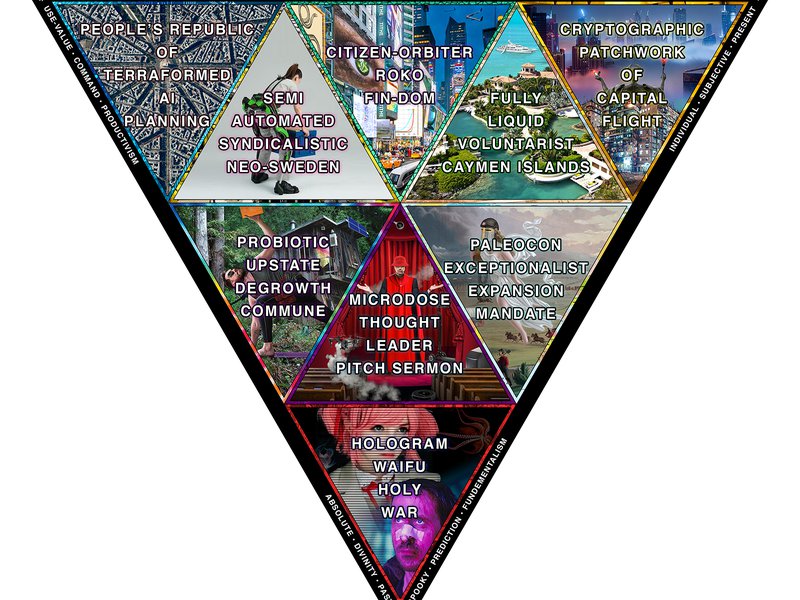 open gallery
open gallery
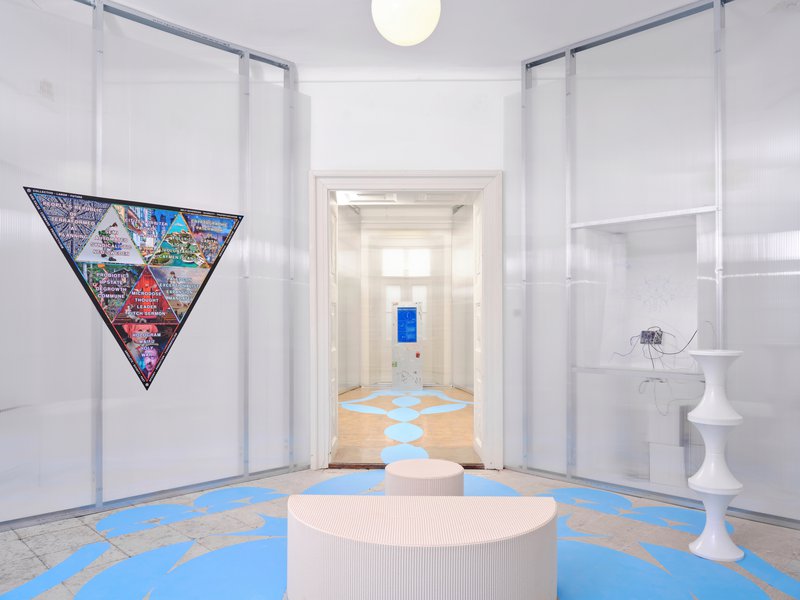 open gallery
open gallery
2021, each 152 x 91 cm, polyester
‘E-deology’ is an internet slang term which describes the overuse of prefixes and suffixes to create complex ideological labels. These hyper-specific categories serve as a form of identity play and niche personal branding in the chaotic landscape of online politics. ‘E-deologies’ are often formalised with a declarative blog-style post and the creation of a customised flag. These flags are usually hung in one’s bedroom like a poster of your favourite band or film. At ISKRA DELTA skyscraper lobby the flags are displayed in a stately arrangement, where representatives might convene to discuss the urgent matters of the day. Just as the young radicals of earlier eras might have gathered on street corners or in beer halls, today’s youth convene in the online equivalent and bring with them all the peculiarities of web 2.0 culture.
The flags as displayed in the lobby (from left to right):
- Monarcho-Syndicalism
In 1922, A Revolucao, a monarcho-syndicalist newspaper was launched as the mouthpiece for Francisco Preto and to aid in the formation of Integralist trade unions. A Revolucao advocated for an alliance between the crown and the traditional catholic proletariat against the bourgeoisie capitalist class. This early experiment helped to lay the foundations for National Syndicalism, a fascist movement which later emerged in the mid 1930’s.
- Left Egoist Transhumanism
This ideology seeks to improve the human subject through science and technology towards the emancipation of the individual. I asked several left-wing scholars to identify the center symbol in red but found no definitive answer (guesses include some variation of an artisans union). It is likely a customized sign pieced together from various clip arts.
- United Ireland
This flag was auto-generated by a Twitter bot which randomly selected the United Kingdom and Ireland as its source material. The post ignited a bitter flame war in the comments and enraged Irish nationalists online.
- The New European Union
A design proposal for the post-Brexit European Union. This combines familiar elements of the various tri-band flags of France, Germany, Croatia, Estonia, Ireland, Italy and others.
- Libertarian Monarchism
What at first appears to be a counter-intuitive ideology finds unexpected traction in the writings of Hans Herman Hoppe, Mencius Moldbug and other NRx circles online. This ideology seeks to privatize every aspect of society including the state; ‘monarchy is just private ownership of government itself’. The future is a cloud-based feudalism ruled by benevolent dictator CEO’s.
- Mutual-Transhumanist-Social-Democratic-Distributist-Georgism
This label describes a highly ethical society in which family units each own their individual means of subsistence and are entitled to the full value of what they produce. Private farm land is administered by the state. Families are largely self sufficient and do not rely on markets to acquire the goods necessary for their own reproduction. Plus a bunch of other internet stuff.
- Anarcho-Primitivist Caliphatism
This term is used to describe two different movements; 1) peasant led anti-clerical struggles against theocratic rule and 2) a hyperbolic version of anarchist writer Hakim Bey’s interest in primitivism and Sufi Islam. The center text is the shahada; “there is no god but Allah and Muhammad is the messenger of Allah”.
- Trans-Strasserism
This flag began as a viral post in r/vexillology by a pseudo-ironic political extremist transgender sex worker. It was later adopted in fringe corners of the internet and is frequently invoked online as an example of long tail political ideologies.
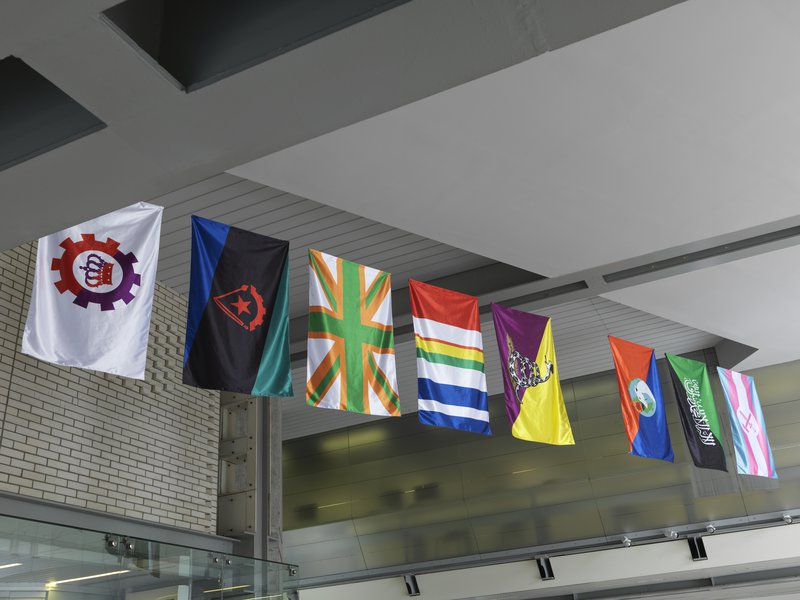 open gallery
open gallery
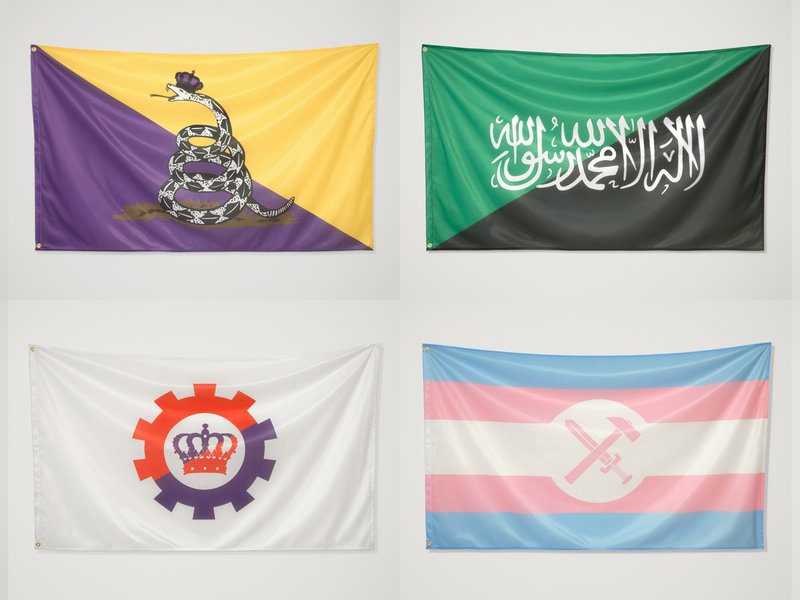 open gallery
open gallery
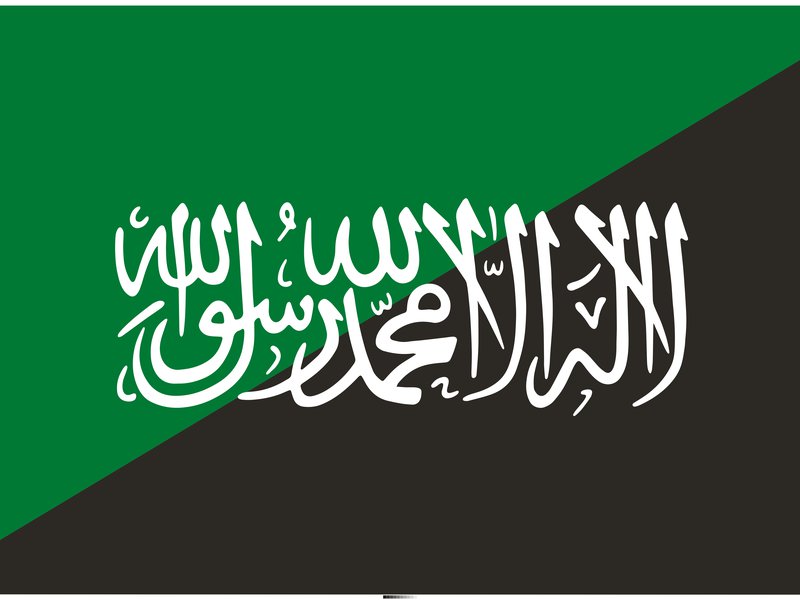 open gallery
open gallery
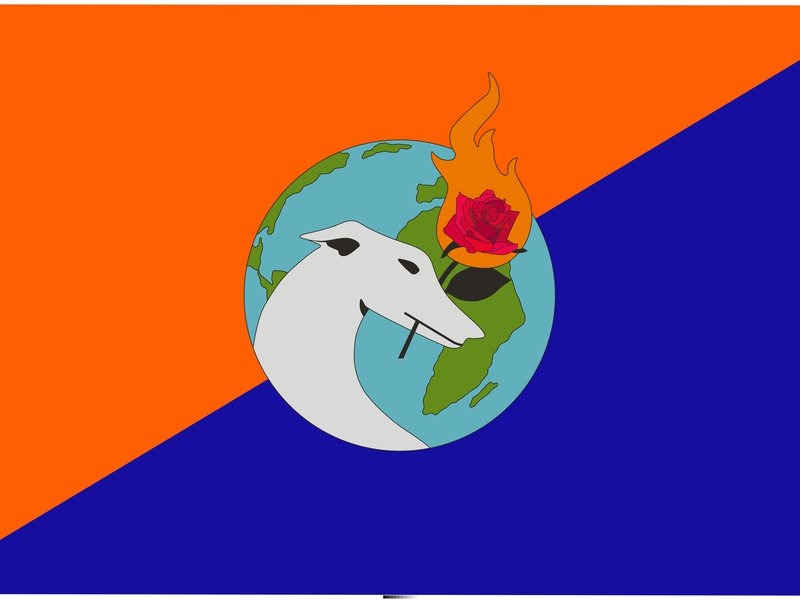 open gallery
open gallery
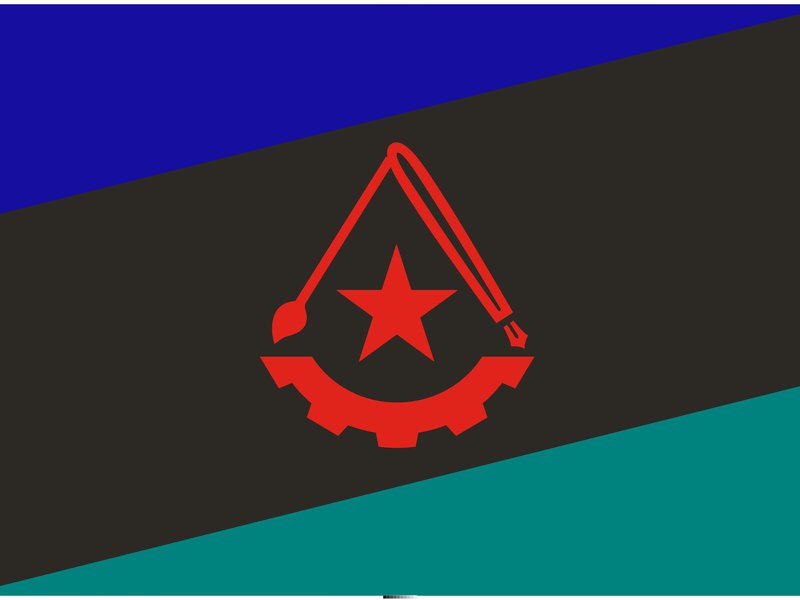 open gallery
open gallery
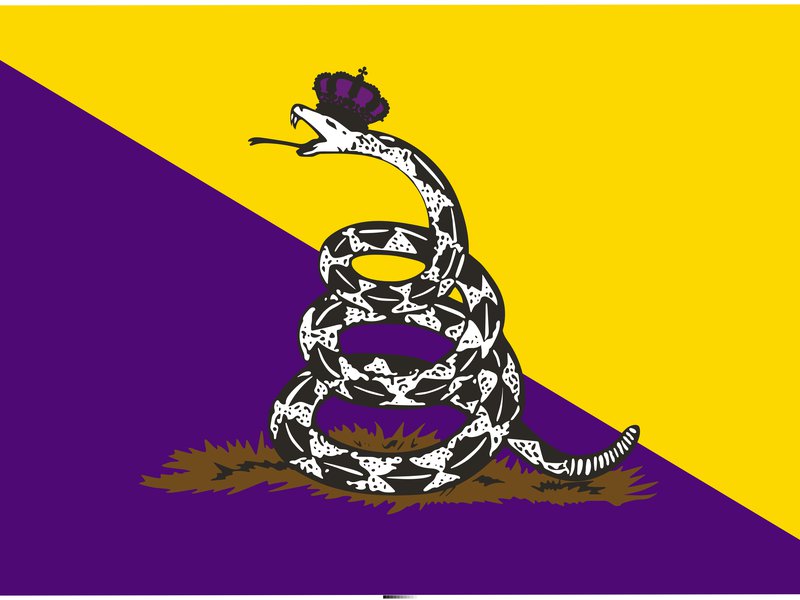 open gallery
open gallery
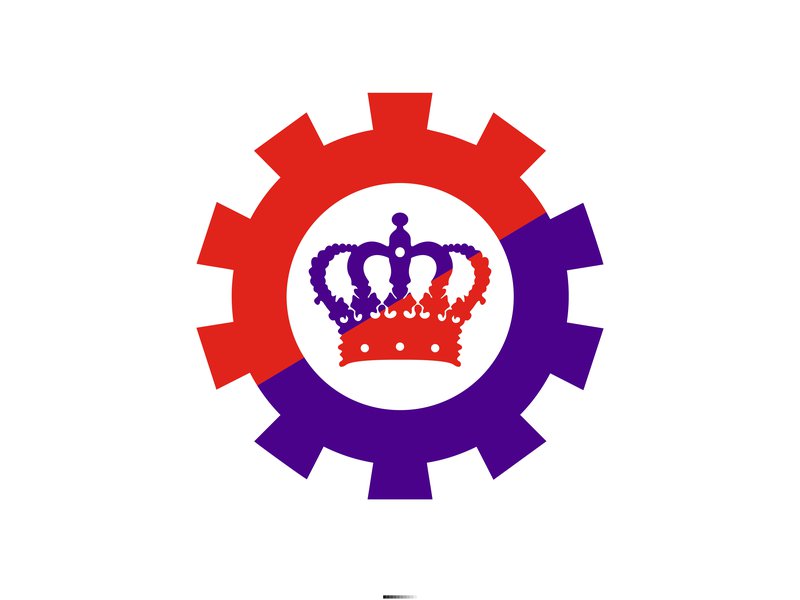 open gallery
open gallery
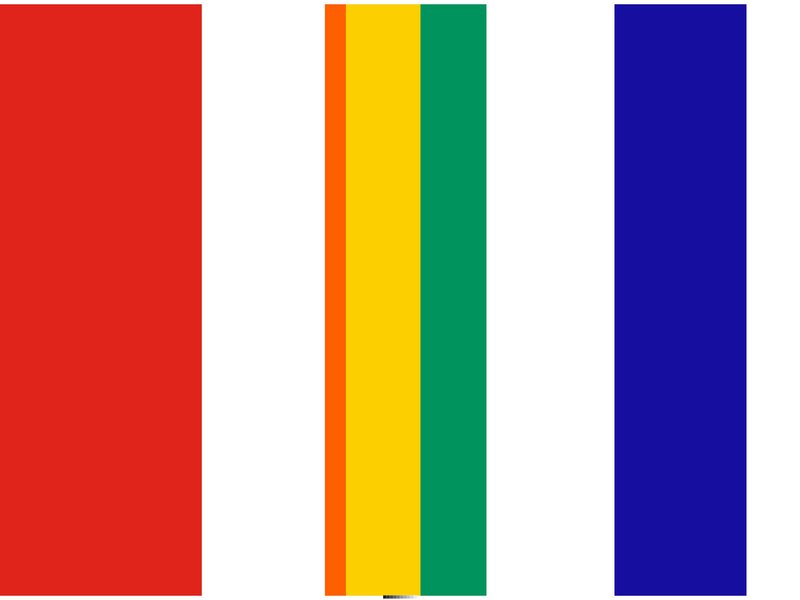 open gallery
open gallery
Joshua Citarella (1987) is an artist and internet culture researcher based in New York City. He is the author of Politigram and the Post-left (2018) and 20 Interviews (2020). Recent solo exhibitions include Left Futures (Bas Fisher Invitational, Miami, FL, 2021) and Forward-Facing Politics (Corcoran School of the Arts and Design at George Washington University, D.C. 2019). His work is included in the collections of the Stedelijk Museum, the Netherlands and Hood Museum of Art in the U.S.
